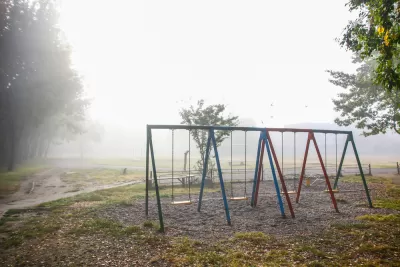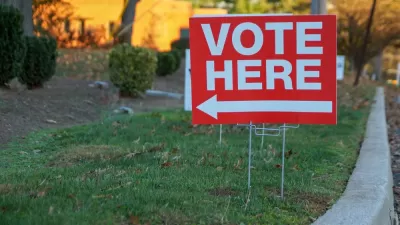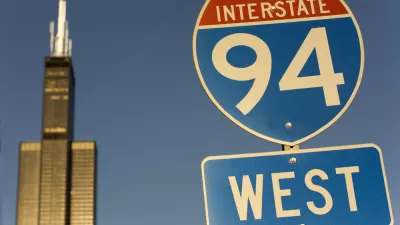A $40 million investment is being split between four cities—Memphis, Chicago, Akron, and Detroit—with the hopes of making big impacts for the community by revitalizing and/or repurposing exiting civic spaces.

A new initiative, "Reimagining the Civic Commons," is hoping to revitalize neighborhoods and diverse communities by investing in improvements in the less glamorous civic institutions that are commonly found in neighborhoods around the country—the rec centers, playgrounds, libraries and community centers. The JPB Foundation, the John S. and James L. Knight Foundation, the Kresge Foundation, and the Rockefeller Foundation are investing $40 million (after a match for the $20 million provided by local sources) into diverse projects in four select cities—Memphis, Chicago, Akron, and Detroit.
Kriston Capps of CityLab reports that the initiative will test a theory that improving these highly localized civic projects will benefit people of all backgrounds in the community, not just one or two subsets.
Libraries and rec centers don’t spend as much money or hire as many people as, say, universities or hospitals. So parks and old school buildings don’t fall into the same category of anchor institution, [Carol Coletta, senior fellow with the Kresge Foundation's American Cities Practice] explains. Nowhere close. But the advantage to more modest civic assets, the thinking goes, is that they’re everywhere. That means that cities can improve specific assets with the hopes of revitalizing communities that span economic classes.
The three-year initiative will be judged on the outcomes for the neighborhood, including improvement in the reputation and socio-economic diversity of the neighborhood, environmental sustainability (i.e., neighborhood walkability, increased tree canopy, etc.), and a new found political support for similar civic projects in the community.
FULL STORY: Creating Sustainable Cities by 'Reimagining the Civic Commons'

Maui's Vacation Rental Debate Turns Ugly
Verbal attacks, misinformation campaigns and fistfights plague a high-stakes debate to convert thousands of vacation rentals into long-term housing.

Planetizen Federal Action Tracker
A weekly monitor of how Trump’s orders and actions are impacting planners and planning in America.

In Urban Planning, AI Prompting Could be the New Design Thinking
Creativity has long been key to great urban design. What if we see AI as our new creative partner?

King County Supportive Housing Program Offers Hope for Unhoused Residents
The county is taking a ‘Housing First’ approach that prioritizes getting people into housing, then offering wraparound supportive services.

Researchers Use AI to Get Clearer Picture of US Housing
Analysts are using artificial intelligence to supercharge their research by allowing them to comb through data faster. Though these AI tools can be error prone, they save time and housing researchers are optimistic about the future.

Making Shared Micromobility More Inclusive
Cities and shared mobility system operators can do more to include people with disabilities in planning and operations, per a new report.
Urban Design for Planners 1: Software Tools
This six-course series explores essential urban design concepts using open source software and equips planners with the tools they need to participate fully in the urban design process.
Planning for Universal Design
Learn the tools for implementing Universal Design in planning regulations.
planning NEXT
Appalachian Highlands Housing Partners
Mpact (founded as Rail~Volution)
City of Camden Redevelopment Agency
City of Astoria
City of Portland
City of Laramie





























